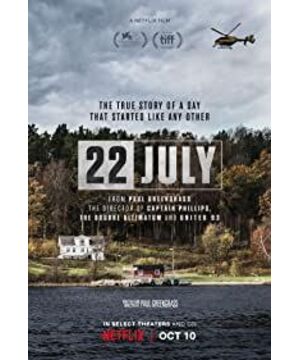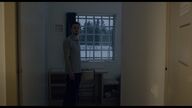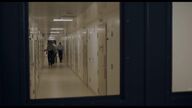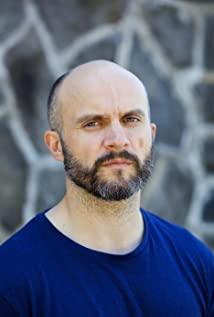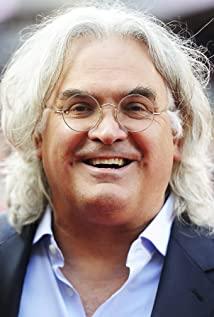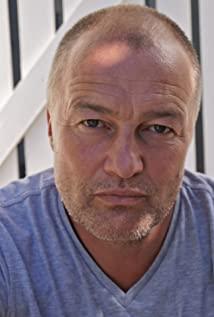Before watching this movie, I almost forgot the Utre Island massacre that shocked Europe 7 years ago. As outsiders, we will naturally enter into the discussion of whether murderers should be sentenced to death and imprisoned. As Europeans involved, watching this film today should be more mixed.
When the Prime Minister of Norway said that "...the response to violence is more democracy and more humanity, but never naivety", according to the current statement, this is a brainless white leftist.
The problem is that the Prime Minister's statement at the time was widely supported by the Norwegian nationals. The public's consensus on knowing the truth is more important than the way of punishing the murderer; the problem is that outsiders may really not understand: Why does the Norwegians' belief in defending the commonly recognized system So firm and strong? Even outsiders can't understand why he is clearly a murderer of a brutal ultra-nationalist, why he still shows the mental cleanliness of a martyr again and again without shame? Therefore, when Via, the seriously wounded person in the movie, declared in court that he would use "alive" as a weapon to teach evil, the murderer could be seen from extreme indifference to the moment when he was shocked. This is the result of Via's victory—— Clash his belief with another belief he is against. From this moment on, while we are still angry that the inevitable death sentence in our experience has failed, the previously tormented Via has been freed.
The murderer said calmly and firmly: (to the effect) Europe is facing the occupation of xxx... I am not alone... Let's look at it for another ten or twenty years... If we heard this sentence in 2011, we might think that It is a ridiculous excuse and alarmist of the extreme right forces. The strange thing is that in Europe only 7 years later, the refugee crisis predicted by the murderer seems to have some bad signs. In Germany, in Sweden, and even in France, there is a lot of trouble, and those who do not have this trouble may be those who are closed. the door...
"July 22" expresses its position on belief in a way of restoring the scene, which is a simple binary opposition. But it leaves and does not enter into a more cruel topic that needs to be verified by reality - the boundary where belief is held. On the one hand, whether beliefs are good or evil, their power over human behavior is completely beyond our common sense. Those who firmly believe in the justice of the system can overcome the torment caused by unprovoked casualties with difficulty but firmly, and entrust their anger and fear to the system they defend together; The line sets the halo of a sense of divine mission. On the other hand, because of this extreme presentation, this movie also presents a big problem to the real world: if the bottom line is repeatedly touched or even broken through, will the strong belief change? And set a lower limit that is not acceptable to yourself?
Look back at the oath of the Norwegian Prime Minister. What is more and what is more, is belief; and "never naive" is vigilance?
There is a report on Xinhua.com that mentions the Norwegian government's new approach - throwing money at people while continuing to support anti-racism.
View more about 22 July reviews


